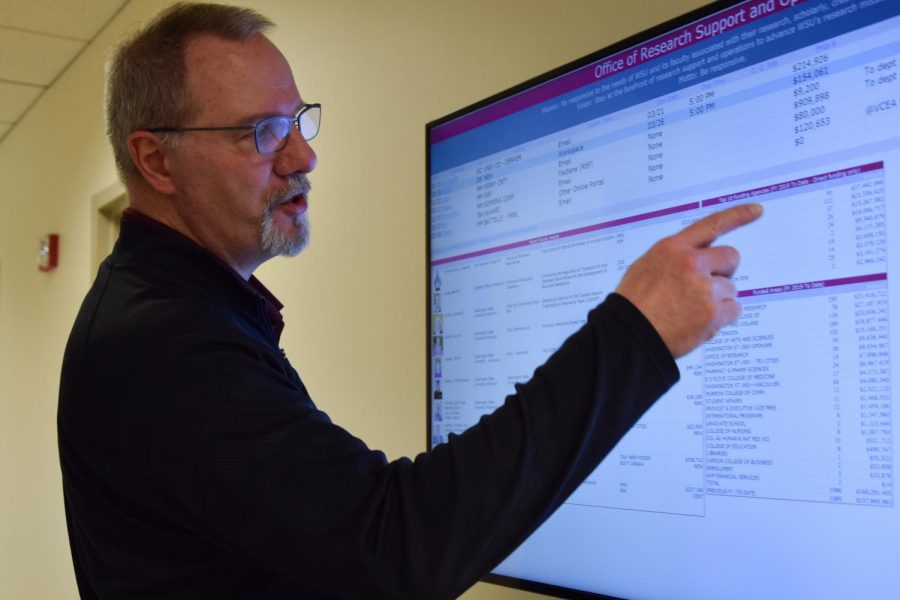USDA funds WSU biofuel research
Researchers say funding supports climate projects
JOSEPH GARDNER | THE DAILY EVERGREEN
Dan Nordquist, associate vice president of research support and operations at the WSU Office of Research, points at a chart with the top funding donors for WSU.
March 20, 2019
WSU leads all other universities in the United States Department of Agriculture (USDA)-funded research and development spending in the last fiscal year.
The amount of research and development spending by WSU is a testament to the quantity and importance of research being done by WSU faculty and students, said Dan Nordquist, associate vice president of research support and operations at the WSU Office of Research.
“This communicates that WSU has the facilities and scientists to do work for the USDA,” Nordquist said.
USDA scientists currently work at the university, he said, and their proximity to WSU faculty and students creates a beneficial collaborative relationship.
Nordquist said much of the research done at WSU involves extension programs in which researchers engage with stakeholders. These include farmers and ranchers to collaborate on and improve the implementation of new research and technology.
“Farmers and ranchers are very involved,” he said. “It is their problems we are trying to solve.”
Nordquist said USDA funds support for research done not only with agriculture and crop sciences but with veterinary sciences, health sciences and even the development of alternative energy sources.
Funding from the USDA helps support research at WSU for projects like the Northwest Advanced Renewables Alliance (NARA), a project to use forest waste from trees to manufacture renewable bio-based alternatives to petroleum jet fuel.
NARA Project Co-director Mike Wolcott said both Alaskan Airlines and Boeing have approved the project. The companies plan to use the bio-based fuel alternative to fly newly-built aircraft to base locations in the future.
Walcott said NARA has also consulted with members of the global energy sector, environmental non-governmental organizations, the forestry industry and the aviation sector.
He said the NARA project is currently winding down, but NARA is still working to develop sustainable regional supply chains for companies to take advantage of this new technology.
Walcott said this new biofuel is more expensive than traditional jet fuels to manufacture, but it is still cost-effective when compared to other biofuels. The biofuel’s true value will be reflected in decreased greenhouse emissions, reduced pollutants, and its ability to create new jobs in rural areas throughout the manufacturing process.
Nordquist said projects like NARA are a good example of how USDA-funded research at WSU can have important economic benefits not just for the region, but for the whole nation.






















